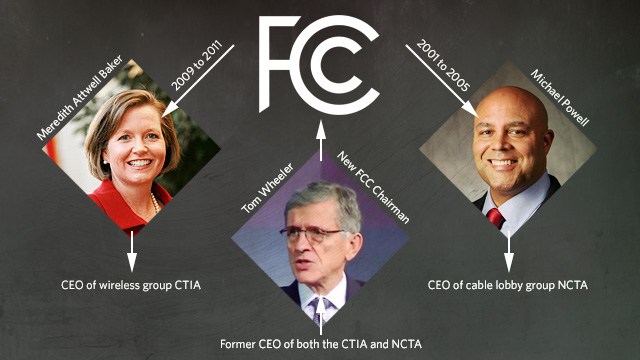This is a syndicated repost published with the permission of The Baseline Scenario. To view original, click here. Opinions herein are not those of the Wall Street Examiner or Lee Adler. Reposting does not imply endorsement. The information presented is for educational or entertainment purposes and is not individual investment advice.
Technology-land is abuzz these days about net neutrality: the idea, supported by President Obama, (until recently) the Federal Communications Commission, and most of the technology industry, that all traffic should be able to travel across the Internet and into people’s homes on equal terms. In other words, broadband providers like Comcast shouldn’t be able to block (or charge a toll to, or degrade the quality of), say, Netflix, even if Netflix competes with Comcast’s own video-on-demand services.*
Yesterday, the Wall Street Journal reported that the FCC is about to release proposed regulations that would allow broadband providers to charge additional fees to content providers (like Netflix) in exchange for access to a faster tier of service, so long as those fees are “commercially reasonable.” To continue our example, since Comcast is certainly going to give its own video services the highest speed possible, Netflix would have to pay up to ensure equivalent video quality.
Jon Brodkin of Ars Technica has a fairly detailed yet readable explanation of why this is bad for the Internet—meaning bad for the choices available to ordinary consumers and bad for the pace of innovation in new types of content and services. Basically it’s a license to the cable providers to exploit a new revenue source, with no commitment to use those revenues to actually upgrade service. (With an effective monopoly in many metropolitan areas and speeds already faster than satellite, the local cable provider has no market pressure to upgrade service, at least not until fiber becomes more widespread.) The need to pay access fees will make it harder for new entrants on the content and services side; in the long run, these fees could actually be good for Netflix, since it won’t have to worry as much about competition. The ultimate result will be to lock in the current set of incumbents that control the Internet, ushering in the era of big, fat, incompetent monopolies.
Not only is this bad for consumers and for innovation, but it’s a reversal (or at least a severe watering-down) of the FCC’s earlier position on net neutrality, established in 2010 under a different FCC chair. Why did this happen? Well, look at this:
That’s from another article that Brodkin published yesterday, on the revolving door at the FCC. To summarize: Tom Wheeler, the current chair of the FCC, has previously been the CEO of the industry organizations for both the cellular industry (CTIA) and the cable industry (NCTA). The NCTA is currently headed by Michael Powell, a former chair of the FCC. The CTIA announced that its next CEO will be Meredith Attwell Baker. Her résumé goes like this: lobbyist for the CTIA; lobbying firms; National Telecommunications and Information Administration (part of the Department of Commerce), where she sided with Comcast against the FCC; FCC commissioner who voted for the Comcast-NBC merger (that’s Kabletown, for 30 Rock fans); head lobbyist for the NBC division of Comcast; and now CEO of the CTIA.
To put things in more familiar terms, this is roughly like Tim Pawlenty leaving the Financial Services Roundtable to become chair of the Federal Reserve and Ben Bernanke leaving the Fed to become head of the American Bankers Association, or Phil Gramm becoming a senior bank executive after shepherding the Gramm-Leach-Bliley Act and the Commodity Futures Modernization Act. (Wait, one of those things actually happened.)
Many business groups like to say that they are against regulation because of free market, big government, economic efficiency, consumer choice, blah blah blah. But in fact, the history of regulation is one of large incumbents (or well-funded, well-connected newcomers) buying politicians and using them to extract rents, raise barriers to entry, erect tariff barriers, and do other things to pad the bottom line. Very occasionally, like in 2009–2010, people sit up and take notice. But most of the time, the casino is open and everyone looks the other way.
* There’s a separate issue about peering deals between different parts of the Internet backbone, which conceptually is a net neutrality issue, but is not addressed by the FCC’s net neutrality rules.
![]()
Join the conversation and have a little fun at Capitalstool.com. If you are a new visitor to the Stool, please register and join in! To post your observations and charts, and snide, but good-natured, comments, click here to register. Be sure to respond to the confirmation email which is sent instantly. If not in your inbox, check your spam filter.



